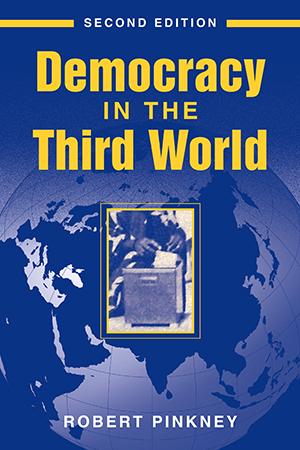Thoroughly updating his widely acclaimed book on third world democracy, Pinkney incorporates provocative explorations of the influences of external forces, the roles of the state and civil society, and the varying trajectories of democratic consolidation (and decay).
The late Robert Pinkney was research fellow in politics at the University of Northumbria at Newcastle.
No rights in South Asia."Pinkney brings a clear depth of understanding to the topics of democratisation and the conditions necessary for democracy to thrive. He is never dogmatic, but manages to cover a range of opinions."—Jeff Haynes,
Journal of Commonwealth and Comparative Politics
"Although there has been a growing number of texts in the last few years addressing this complicated, enduring issue, few have been of the calibre or usefullness of this volume by Pinkney."—Canadian Journal of Development Studies
"An incisive and provocative work, at once historical and analytical.... a tour de force of comparative analysis.... This work presents an interesting challenge to democratic assumptions and to Western conceptions of human rights.... [Pinkney's] smoothly written narrative leaves the reader with a keener understanding of the complexity and fragility of democratic rule."—Journal of Third World Studies
"Contains an in-depth and rigorous analysis of the factors contributing to and militating against the transition to democracy in the third world.... It is surely an accessible resource for both undergraduate and graduate students."—Human Rights Quarterly
"Robert Pinkney has written a very intelligent book."—International Journal on World Peace
"A text to nurture budding political scientists."—Studies in Comparative International Development
"All students of politics should read this book."—Library Association Journal








